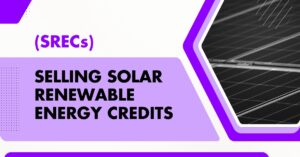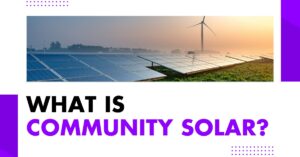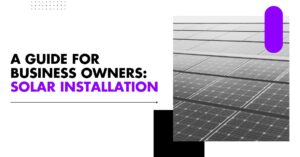What Makes Commercial Solar Panels Efficient?
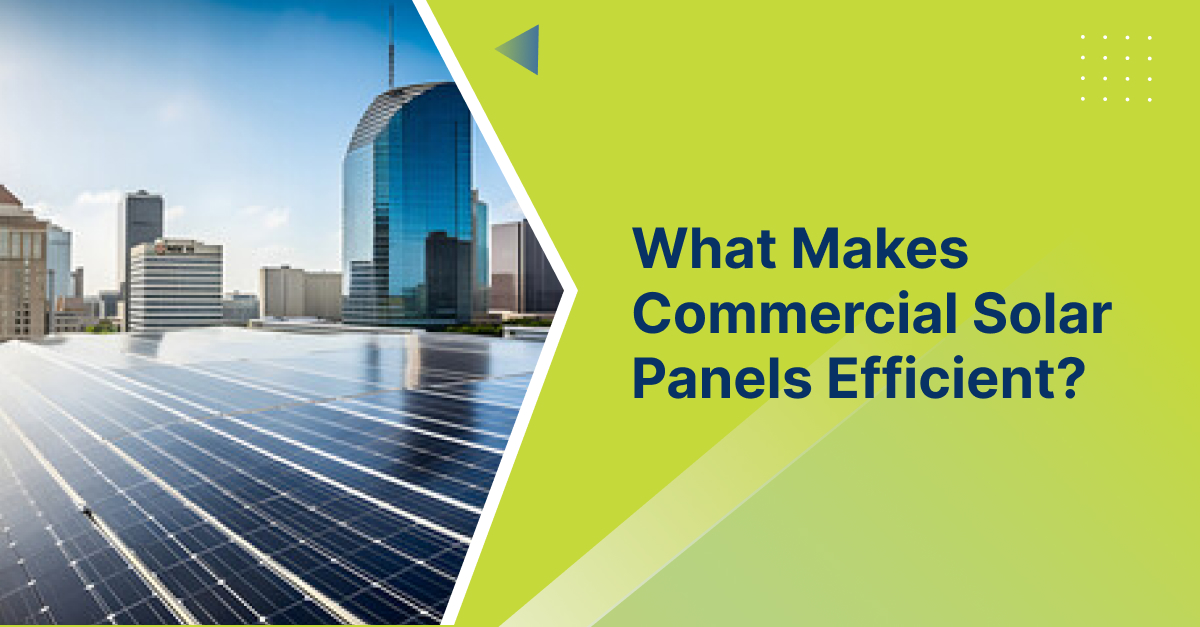
What Makes Commercial Solar Panels Efficient?
The efficiency rating of the solar panels you choose for your commercial property is essential when selecting the right solar panels. Choosing the right solar panels is the key to maximizing your profit from the investment.
The type of solar panels we use today was invented in 1883 and had an efficiency of 1%. By 2010, the average efficiency rate of solar panels had increased to 15%. Presently, the average efficiency rate of solar panels is nearly 23%. While technology has advanced to achieve solar cells with 40% efficiency, their commercial production is still pending. However, the efficiency of solar panels can typically range between 15% and 23%, influenced by various factors.
While panels with a higher efficiency rating take up less space, they are more expensive. However, if your business has limited space, a high-efficiency rating is what you should look out for.
On the other hand, businesses with plenty of roofs or ground space can get excellent savings with solar panels with a lower efficiency rating. Your choice depends on your budget, location, incentive access, and space availability.
Is It Worth Investing in Solar Panels?
Although an efficiency rate of 15% or even 20% may appear low, solar energy is an incredibly abundant resource. Harvesting just 20% of its electricity is sufficient to generate a good amount of solar energy. Here are some facts that can help put solar panel efficiency into perspective:
- One hour of sunlight on Earth is enough to cover our entire planet’s energy consumption for a year.
- A solar panel with a 20% efficiency rating can produce up to 330 watts of power in one hour.
Factors Which Determine Solar Panel Efficiency
While each solar panel has its fixed efficiency rating, a few things will influence the amount of solar energy your solar panels can produce.
Climatic Conditions
If your business is located in an area prone to frequent storms and cloudy weather, you may encounter days when your solar panels produce less energy than usual. It doesn’t mean you’ll remain powerless, however. You can still reduce your electricity consumption and draw the energy you need from your utility provider to stay up and running. Better yet, if you pair your solar panels with battery storage, you can save excess energy generated during peak sunshine hours for later when your solar panels aren’t as efficient.
Shading and Obstacles
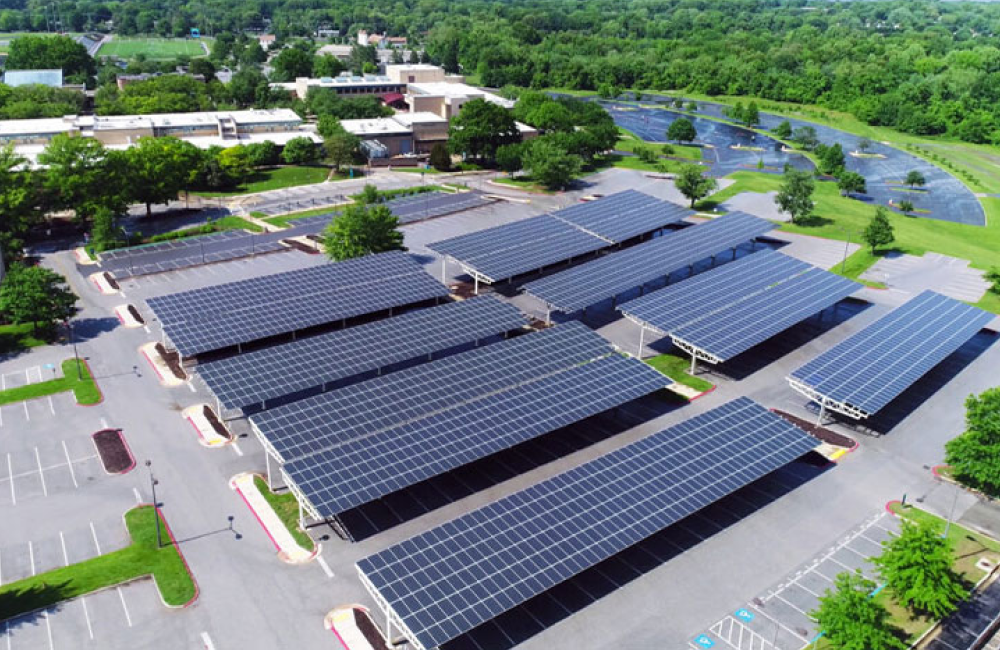
The location of your commercial property can impact your ability to produce solar energy. If your roof is obstructed by shade from nearby buildings or other obstacles, this can significantly reduce the efficiency rate of solar panels. The direction your roof faces also plays an essential role in the production of solar energy. A south-facing roof is ideal, but a south-west-facing roof works well too. If your roof faces an unfavorable direction, it’s worth looking into rooftop solar alternatives such as ground-mounted solar panels or solar canopies for your parking lot.
Location
Your geographical location determines how many hours of sunlight you receive on average. Naturally, certain areas receive more sunlight during summer months, but there is a variation in the range of peak sunlight hours across different locations. For example, Florida gets an average of 6.16 hours of peak sunlight on summer days, whilst Massachusetts receives an average of 4.27 hours of peak sunlight on summer days.
Maintenance
Solar panels only require a little maintenance, but properly caring for your installation can ensure that its efficiency rate remains high. While it’s true that solar panels begin to degrade slightly as the years go by, this can be exacerbated by the presence of dust and debris, as well as bird droppings. To maintain maximum efficiency, it is recommended to gently clean your solar panels every six months, avoiding the use of powerwash tools.
Go Solar With IE Construction
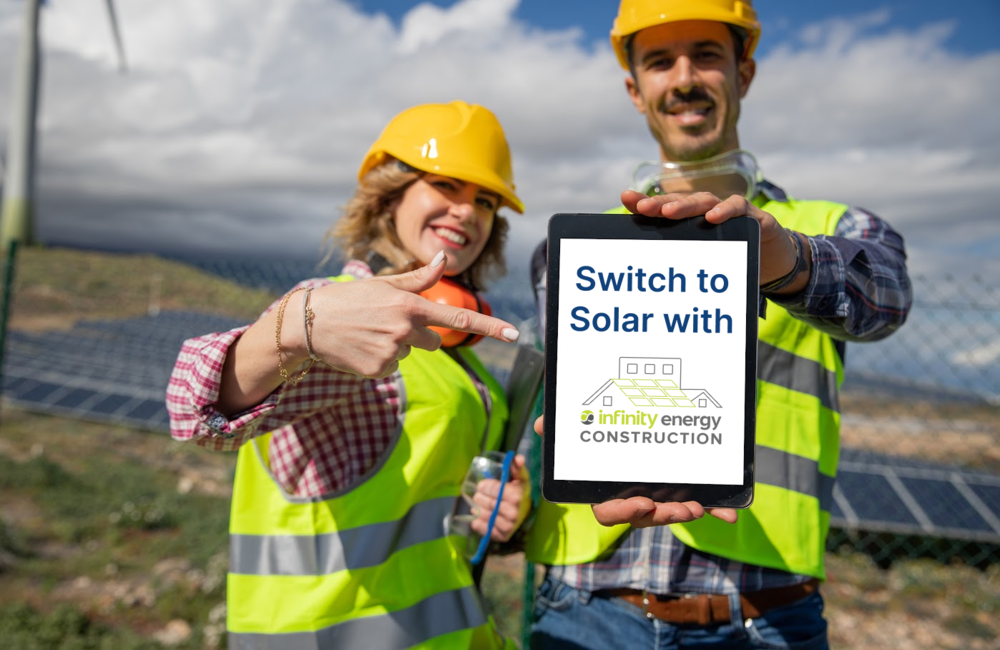
The efficiency rate of commercial solar panels depends on the type of panel you choose, your commercial property’s unique position, and your infrastructure. We provide turn-key commercial solar solutions which maximize efficiency and are tailored to your budget and needs.
Our expert advisors can help you decide which materials to use for your solar installation and determine which type of installation will best suit your circumstances. We can also assist you with solar financing, permitting, and applying for incentives. Contact us today to find out how we can make your switch to solar easy.


